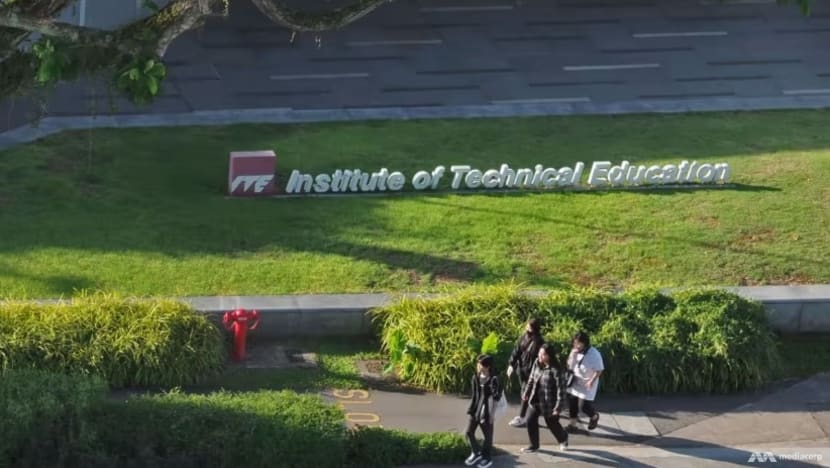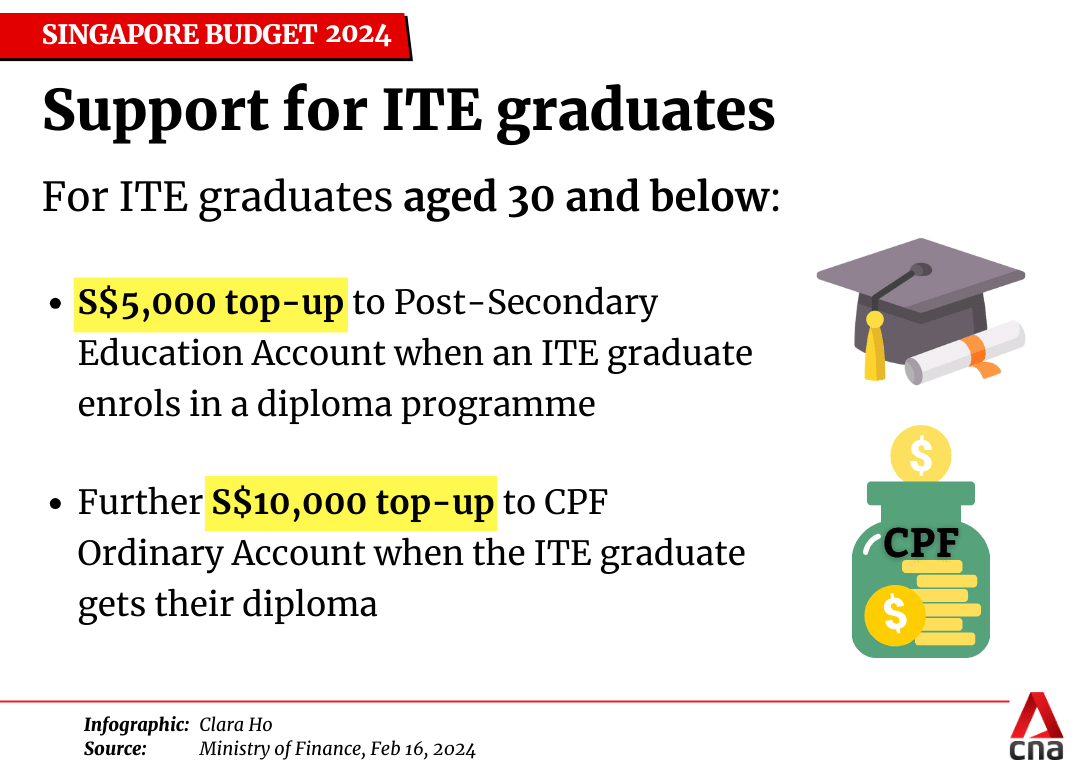Budget 2024: ITE graduates to get S$10,000 in CPF if they obtain a diploma
They will also receive S$5,000 in their post-secondary education accounts for enrolling in a diploma programme.

Students seen near an ITE sign. (File photo: TODAY/Mak Jia Kee)

This audio is generated by an AI tool.
SINGAPORE: Graduates from the Institute of Technical Education (ITE) will get financial incentives to further their education, announced Deputy Prime Minister Lawrence Wong on Friday (Feb 16).
Under the new ITE Progression Award, graduates aged 30 and below who choose to pursue a diploma will be eligible for two government top-ups.
The first is S$5,000 (US$3,700) in their post-secondary education accounts when they enrol in a diploma programme. The second, given when they attain a diploma, is S$10,000 in their Central Provident Fund (CPF) Ordinary Account.

"We want to encourage and support more young ITE graduates in their upskilling efforts, so they can excel in a profession they have trained in, and get themselves on a better career and wage trajectory," said Mr Wong, who is also the Finance Minister, during his Budget 2024 speech.
The wages and career prospects of ITE graduates should not be too far below those who went to polytechnics or universities, he added.
“There will always be differences in wages in any society. But too large a gap creates unhealthy levels of anxiety and stress.
“Parents and children may get caught up in an education arms race, or may feel pressured to prioritise careers only in a few traditional fields, instead of focusing on their individual strengths and talents.”
In last year’s Forward Singapore exercise, most Singaporeans welcomed a broader definition of success, said Mr Wong.
With more diverse pathways, every individual can “strive to be the best possible version of themselves”, he added.
“This also means we must accord greater value to those who are skilled in technical hands-on abilities, as well as those with the social and empathetic traits to excel in service jobs.”
While the real median gross starting pay of ITE graduates has increased by S$310 (US$231) over the last decade when adjusted for inflation, they still earn half of what their university peers do, according to graduate employment surveys.
From 2027, Higher Nitec students with a grade point average (GPA) of 3.5 will be guaranteed admission to a polytechnic course mapped to their current course, the Ministry of Education (MOE) announced in July last year.
This new minimum GPA requirement will benefit about 1,000 students, or the top 10 per cent of Higher Nitec graduates, said the Education Ministry at the time.
Currently, around 900 graduates from the Direct-Entry Scheme to Polytechnic Programme (DPP) qualify for a spot in a polytechnic. This programme allows Normal (Academic) students to be admitted directly into a two-year Higher Nitec programme without having to sit for the O-Level examinations or go through a Nitec programme.
With the rollout of full subject-based banding from this year, the DPP pathway will cease from the 2028 ITE intake.
The minimum entry requirements for ITE students to progress to polytechnics will also be raised from GPA 2.0 to GPA 2.5 from the 2027 polytechnic intake, to ensure students can better cope with the academic rigour of a polytechnic education, the Education Ministry said.























